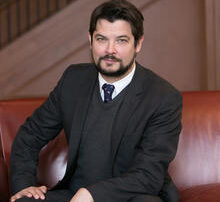Rethinking the Origins of Political Economy in the European World: Needs, Justice, and the Wealth of Nations
by Sophus Reinert
This two-year research project seeks to both expand and deepen our understanding of the historical relationship among human rights, human needs, and the emergence of commercial society during Europe’s imperial age.
Although the Enlightenment of the long eighteenth century is the essential temporal frame of reference for interrogating this relationship, essential to this project is the recognition that the “Economic Turn” of the mid-eighteenth century—the notable realignment of intellectual and political interest that dramatically heightened the prominence of political economy and profoundly influenced later theory, practice, and symbolic meanings—did not emerge fully formed from the head of Zeus around 1750, nor did it come to an abrupt halt with the French Revolution less than four decades later.1
Our interest, therefore, lies in uncovering and exploring longer contexts for the confluence of marketization, human rights and needs, and international competition in Europe and its colonies from the thirteenth century to the 1848 Revolutions, a period understood in intellectual-historical terms to begin with the canon lawyers controversially identified by Brian Tierney as the originators of the concept of human rights or perhaps the economic sermons of Peter John Olivi, and to end in John Stuart Mill’s codification of classical economics or the Communist Manifesto of Marx and Engels. Across these contexts, the central question of our inquiry are these: How were private and public needs and duties theorized and acted upon in light of the increasing commercialization of society? How did they relate to international relations at a time of intensifying rivalry, emulation, and jealousy of trade?2 And how, ultimately, were the relations between individuals, corporations, polities, and humanity conceptualized, formalized, and challenged in the age when, in David Hume’s famous phrase, “Trade” first became an “Affair of State”? 3
International historiography has often examined this nexus through the lens of the Scottish Enlightenment, particularly the works of Hume and Adam Smith. In its framing, our project pays explicit homage to István Hont and Michael Ignatieff’s seminal 1983 essay on “Needs and Justice in the Wealth of Nations” as an intellectual starting point. 4 In it, they argued that Smith’s purpose in writing his magnum opus was to locate a market mechanism capable of reconciling significant inequalities of wealth with adequate provision for the needs of the poor and propertyless. While Hont and Ignatieff skillfully illuminated the Smithian and earlier Natural Law perspectives of Grotius and others, our project seeks to expand the inquiry from Smith’s eponymous title to the broader world it addressed, and to reckon seriously with the Enlightenment discourse regarding the “rights of man” explored in recent years by Vincenzo Ferrone. 5 To this end, we hope to investigate diverse traditions of political-economic thought and practice during this period, considering their unique contexts, conclusions, and the ways they intersected with education, communication, travel, translation, competition, and emulation. 6
In so doing, we draw inspiration also from Franco Venturi’s pioneering work on the Enlightenment, particularly his studies of local intellectual and political currents and their connections to broader international developments. 7 Recent strides in the histories of global capitalism, empire, the environment, finance, and slavery have revitalized the study of political economy, offering fresh perspectives that are integral to our approach. 8 Similarly new intellectual-historical work, like Samuel Moyn’s Not Enough, has attempted to rewrite the intellectual trajectory of human rights discourse by contrasting it with more egalitarian models of distributive justice. 9 Building on such recent scholarship, our project is open to a broad temporal and interdisciplinary exploration of political economy at, around, and before its origins. We encourage considering the most diverse possible perspectives—the lawyer-experts and consultants of late-medieval urban Italy, economic reformers in Enlightenment Iceland, the social world of the early nineteenth-century French novel, to suggest just three of exceedingly many possibilities—as potentially relevant frameworks for shedding new light on one of the central dilemmas of the modern world: the fraught relationship between needs and rights in market societies locked in the crucible of international rivalry.
Indeed, a key concern of this project is to expand the historiographical canon of political economy. Rather than viewing the field as pioneered largely by François Quesnay’s Physiocracy, mapped by Adam Smith, and charted by David Ricardo—an ostensibly neutral genealogy that actually is the product of specific ideological choices—our aim is to showcase the diversity of traditions (including traditions of practice) that engaged with the problems of human rights and human necessities in competing commercial societies, including the varieties of Cameralism and the Italian tradition of economia civile in the long eighteenth century.10 A full accounting of the interaction of politics, markets, and justice both commutative and distributive lies beyond the scope of any project, but this field has for too long been devoted to studying the same great names in the same predictable contexts. By approaching our subject comparatively or holistically, we aim to develop a more historically-grounded understanding of the justice of markets—an endeavor that not only enhances our understanding of the past but also sharpens our arguments and ideals in the present.




